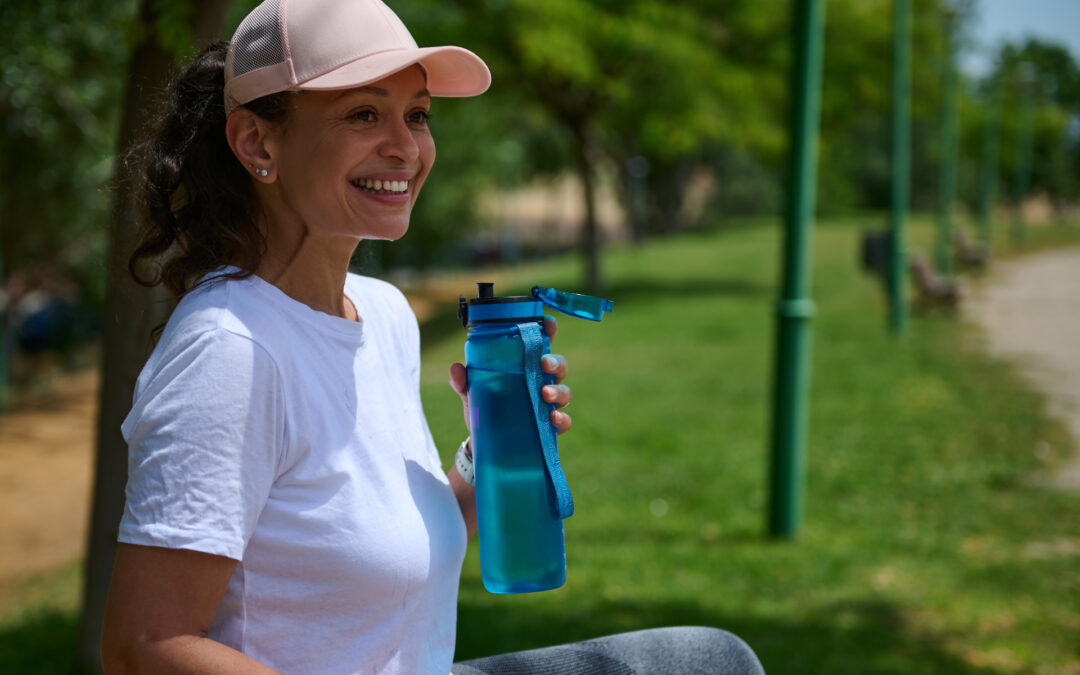As temperatures rise, so does your body’s demand for water. Hydration plays a vital role in keeping your organs functioning, your energy up, and your temperature regulated. By the time you feel thirsty, you’re already mildly dehydrated.
Know the Signs of Dehydration
- Mild to Moderate Dehydration: Dry mouth, dark yellow urine, headache, fatigue, dizziness.
- Severe Dehydration: Rapid heartbeat, confusion, fainting, no urination for 8+ hours. This is a medical emergency.
Children and older adults are especially vulnerable. Kids can dehydrate quickly when active outdoors, and older adults may not feel thirst as acutely.
Stay Ahead of Dehydration
- Drink throughout the day, not just during meals. Aim for 8-10 glasses of water daily; more if you’re active or sweating.
- Eat water-rich foods like cucumbers, watermelon, oranges, and lettuce.
- Avoid diuretics: Soda, alcohol, and too much coffee can make dehydration worse.
Skip the Sugary Sports Drinks
Many popular hydration drinks are packed with sugar, artificial dyes, and chemicals. Unless you’re doing high-endurance exercise, plain water is best. You can boost electrolytes naturally by adding a pinch of sea salt and a splash of fruit juice or coconut water.
Simple Hydration Hacks
- Carry a reusable water bottle and refill it often.
- Set a hydration reminder on your phone.
- Flavor your water with lemon, mint, or cucumber for variety.
At Horizon Family Medical Group, we see many heat-related cases in the summer. Most could be prevented with better hydration habits. If you’re feeling off, especially in the heat, don’t wait. Dehydration can escalate quickly. Talk to your healthcare provider here at Horizon Family Medical Group if you have concerns or need help creating a hydration plan for your child, your parents, or yourself.

